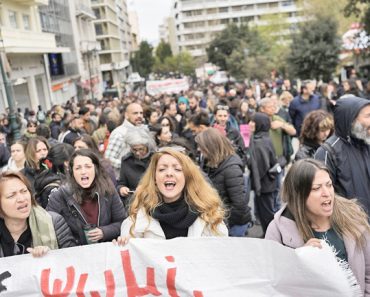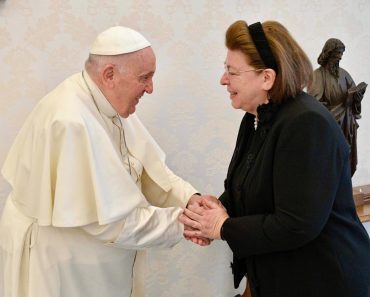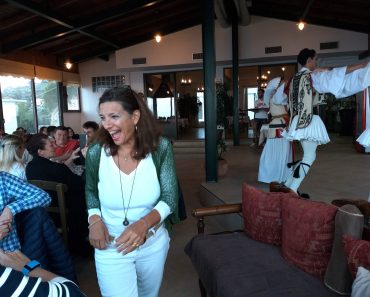An important step towards further strengthening the already close cultural ties between Greece and Saudi Arabia took place during the first meeting of the Joint Cultural Committee, held under the presidency of Culture Minister Lina Mendoni and her Saudi counterpart, Prince Badr bin Abdullah bin Farhan Al-Saud.
During their discussions, the two ministers talked about new collaborations, most notably the organization of a joint exhibition titled “Lalon Hydor. Stories of Water” to take place in various museums across Saudi Arabia in 2026. The exhibition will include ancient artifacts and contemporary artworks from Greece and Saudi Arabia, highlighting the significance of water as a vital element of life and showcasing the similarities between the cultures of the two countries.
They also expressed satisfaction with the cooperation between the two sides in managing archaeological sites, focusing on the exchange of expertise and reinforcing common working mechanisms, with the immediate goal of signing an executive cultural program. Additionally, they explored the potential for cooperation between the two ministries regarding the under-construction National Museum of Underwater Antiquities, located in the SILO building in Piraeus, and the Red Sea Museum, which is being inaugurated in Jeddah in 2025.
The cultural collaboration between the two countries was formalized with the Memorandum of Understanding in the Field of Culture, signed in July 2022, and was evident in Greece’s participation at the International Craft Weeks in Saudi Arabia (BANAN), held in Riyadh in November 2024, and the Islamic Arts Biennale taking place in Jeddah from January to May 2025.
Furthermore, in September-October 2024, the “Cultural Week of Saudi Arabia” was hosted at the Zappeion Megaron, featuring a special booth dedicated to the “Year of the Camel 2024.” This event included musical and theatrical performances, workshops on traditional arts, gastronomy booths, an exhibition of Arabic calligraphy, a showcase of Saudi fashion, and film screenings.
The culture ministers of Greece and Saudi Arabia discussed intensifying collaboration concerning monuments from both countries listed on the UNESCO World Heritage List, with particular emphasis on Al Faw in Saudi Arabia, which was inscribed in 2024 as a cultural landscape. The significance and dating of the findings at Al Faw set the stage for potential collaboration with archaeological sites in Glafki in Boeotia, Mycenae, Tiryns, and Delos, which served as a strong commercial and transshipment center, much like Al Faw.
During her visit to Jeddah, Minister Mendoni held a working meeting with the CEO of Saudi Arabia’s Museums Commission, Mona Khazindar. They discussed exchanges and exhibitions between the two countries, both in the field of cultural heritage and contemporary art. Particular mention was made of the under-construction “Museum of Global Cultures” in Riyadh and the possibility of systematically exhibiting Greek antiquities through long-term loans, in accordance with current archaeological legislation.
Lina Mendoni also held a working meeting with the Director General and members of the Cultural Heritage Commission of Saudi Arabia, Sultana Al Sulta, where she emphasized the importance of exchanging scientists and experts aimed at protecting, conserving, and promoting cultural heritage, as part of the collaboration between Greece’s Ministry of Culture and Saudi Arabia.
During her trip, the Culture Minister visited the Islamic Arts Biennale and was guided through the exhibition by the Deputy Minister of Culture, Rakan AlTouq, where the Benaki Museum’s Islamic Collection is showcased with remarkable findings. Additionally, she toured the historical area of Jeddah (Al-Balad) with the Deputy Minister of Culture, Fahad Alkanaan, where a comprehensive city revitalization and restoration program for old preserved buildings is underway, managed by the Saudi Ministry of Culture.
Lina Mendoni also visited the Tariq Abdul Hakim Museum, dedicated to the musician Abdul Hakim, who introduced string instruments to Saudi music and was the first Arab musician to receive the UNESCO International Music Award, leaving behind a rich musical heritage. This museum is analogous to the Museum of Greek Traditional Instruments by Phoebus Anogiannakis, which is under the General Directorate of Antiquities and Cultural Heritage of the Ministry of Culture. Discussions on prospects for collaboration between the two museums took place.
Ask me anything
Explore related questions







